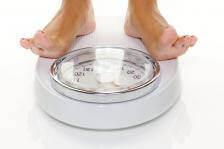How Many Calories Do I Need?
Can you trust online calorie calculators?

Sponsor: The podcast version of this episode is brought to you by Audible.com the internet’s leading provider of audiobooks with more than 100,000 downloadable titles across all types of literature, including fiction, non-fiction and periodicals. For a free audiobook of your choice, go to https://www.audiblepodcast.com/diva
If you’ve never come across one of the calculators yourself, here’s how they work: You enter in your height, weight, age, gender, and activity level and the calculator tells you how many calories you burn each day. From that, you can extrapolate how many calories you should be eating. For example, if you are happy with your current weight, then you would eat the same number of calories that you burn each day. If you want to lose weight, you’d want to eat less than that “maintenance” number. And, obviously, if your goal is to gain weight, you’d eat more.
It all sounds simple enough. But if different calculators give you different results, even when you plug in the same information, how do you know which one you can trust? These calculators use various formulas to estimate the calorie expenditure for a typical person of your age, height, weight, gender, and activity level. Different calculators yield different answers because they may use different formulas. So, which one can you trust to give you an accurate number?
Answer: None of them!
How is Calorie Expenditure Measured?
Several times a week, I get emails from readers who want me to tell them exactly how many calories they can eat in order to maintain their weight or lose a certain amount of weight. Unfortunately, the only way to find out would be to go to a research laboratory and spend 24-hours in a special chamber, or wear a mask or hood that measures your actual energy expenditure as you go through your daily activities.
For most of us, this is obviously not practical. And even though this might give you a much more accurate answer than a formula, it is still only a snapshot of a single day. Your metabolism is affected by many things, including diet, age, body composition, even how hot or cold the environment is. I’ve talked about many of these factors in previous articles. For example:
-
Increasing the amount of protein in your diet can cause you to burn a few extra calories.
-
Engaging in some serious weight training and building up bigger muscles would also increase the amount of calories you burn in a 24-hour period.
-
People who are naturally fidgety burn substantially more calories than people who are not—and I’ve never seen a calculator that asks you how fidgety you are, have you?
-
Turning down the thermostat a degree or two would increase your energy expenditure (aka, increase your caloric burn).
-
As we get older, our metabolisms tend to slow, meaning that we burn fewer calories than a younger person of the same size.
The impact of any these factors may be small. But when you consider all the variables, you can see that any number spit out by an online calculator can only be a very loose estimate of your actual energy expenditure on any given day.
How Accurate are Food Calorie Counters?
I don’t know if this next piece of news makes the situation better or worse but those calculators that tell you how many calories are in your food aren’t really any more accurate than the ones that calculate how many calories you burn.
You can look up exactly how many calories are in an egg or a bunch of broccoli but this number is merely an estimate, based on the average number of calories in representative samples. Just like people, the plants and animals that provide our food are unique organisms.
The amount of sugar in an apple or the amount of protein or starch in a grain will depend on the variety, how warm or wet or dry the season was, how early or late they were picked, quality of the soil—not to mention random genetic variation. Likewise, the amount of fat in steak will depend on the feed and the particular type of livestock, the health of the herd, and the weather.
Even the calories listed on the nutrition facts label of your breakfast cereal or energy bar are ball-park numbers. Legally, they can be off by as much as 20% and still be in compliance with the rules. Yes, really!
Why Count Calories?
By now, you might be wondering why we spend so much time toting up calories—how many calories we should eat, how many calories various activities burn, the number of calories in various foods—when all the numbers we are working with are merely vague approximations.
Formulas that estimate energy expenditure and databases that list caloric content of foods are certainly useful for researchers, health professionals, and policy experts. They can also be helpful for people who are trying to watch their weight or plan their diets. Just remember that they are really only a rough guide and not an exact science. That’s one of the reasons that when it comes to diet and weight management, you’ll usually hear me talking about things other than calories—such as food choices, portion size, and eating and lifestyle habits.
Related Content: How to Lose Weight without Cutting Calories


